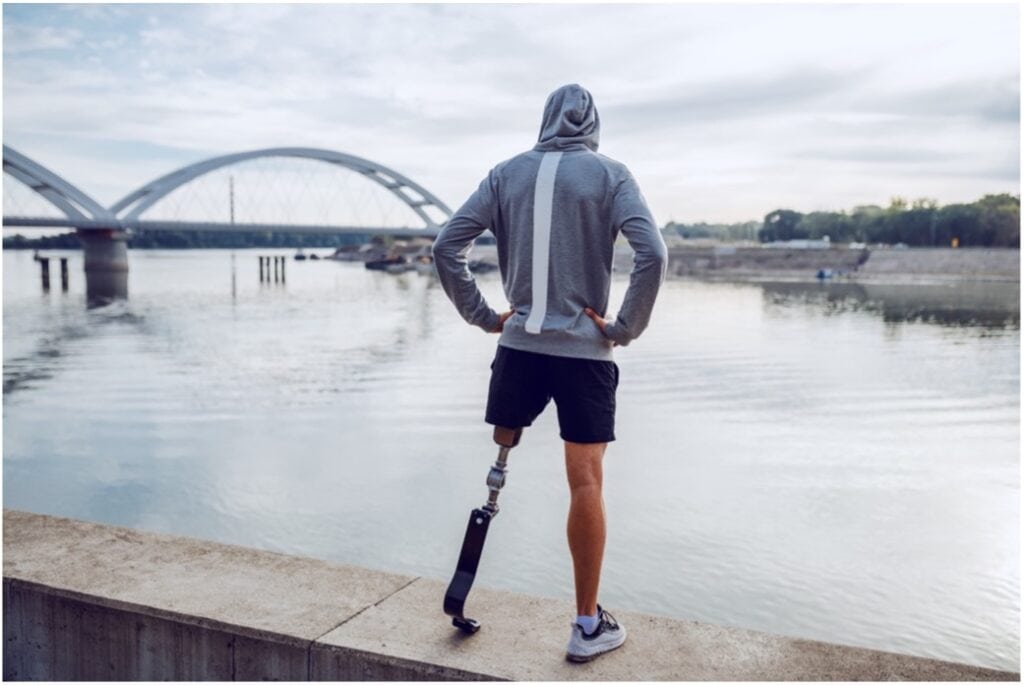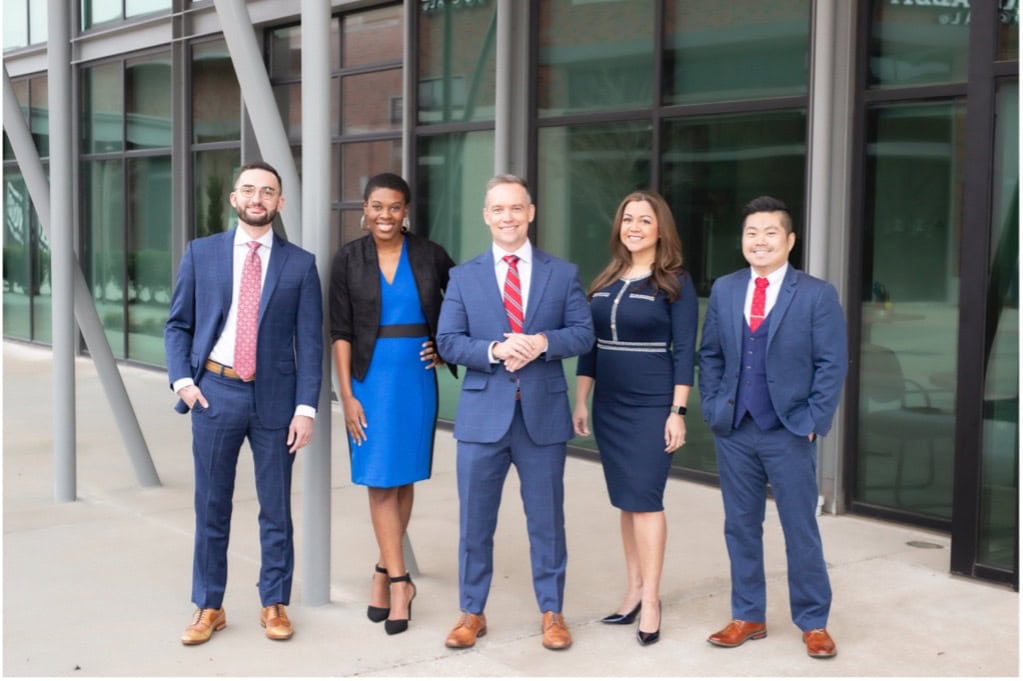Snellings Law PLLC Attorneys are Personal Injury Trial Lawyers
Beyond the Scars: Psychological Impact of Disfigurement Caused by Car Accidents
What You Need to Know:
- Disfigurement can occur from car accidents.
- Disfigurement can have a profound psychological impact on victims, resulting in the development of PTSD, anxiety, depression, and body image issues.
- Some resources and treatments can help combat the psychological impact of disfigurement.
In the split-second chaos of a car accident, lives are forever altered. Car accidents can cause serious injuries, including traumatic brain injuries, spinal cord injuries, and broken bones. These injuries often require extensive treatment. The burden of recovery can be overwhelming.
While injuries themselves are challenging to heal and mentally recover from, we often forget about the injuries that leave lasting scars. Whether from burns, scars, or the loss of facial features, the aftermath of disfigurement extends beyond the visible marks on the skin. Disfigurement has a significant psychological impact on victims as well.
With our experience as personal injury attorneys, we have unfortunately seen too often the impact disfigurement has on car accident victims’ mental health. In every step of the recovery process, these victims must overcome extreme mental barriers along the way and afterward. This blog explores that significant psychological impact, shedding light on the emotional journey of those who bear these scars.

Disfigurement in Car Accidents: Causes and Consequences
Disfigurement permanently damages an individual’s soft tissue or bones, resulting in an altered physical appearance. Disfigurements are catastrophic injuries. Amputations are a form of disfigurement because they change a victim’s appearance.
In a car accident, there are many ways disfigurement can occur. When a vehicle moves, individuals and cargo inside the vehicle are traveling forward with the car. When hit by another car, there is a sudden change in the car’s momentum. However, the car’s occupants are still moving forward due to inertia. As a safety measure, cars are designed with crumple zones. Crumple zones give the car’s occupants more time to adjust to the change in momentum by absorbing force. However, an individual can still come into contact with hard objects inside the vehicle, leading to a disfiguring injury. Disfigurement can also occur if an outside object enters the vehicle during the crash and impacts the victim. Alternatively, disfigurement can also occur if the occupant is thrown from the vehicle during the car accident and comes into contact with an outside object.
No matter the cause, disfigurement can have a profound impact on the victim in the immediate moments after the crash, during the healing process, and even for the rest of the victim’s life.
Understanding the Shock: The Immediate Psychological Impact of Disfigurement from a Car Accident
When we experience a stressful event, like a car accident, our brain goes into survival mode. In the moments during and immediately after a car crash, victims generally experience several emotions: shock, fear, hopelessness, horror, confusion, exhaustion, and many more. Experiencing these emotions in such a short span impacts the brain and the body. The prefrontal cortex, the part of the brain in charge of rational thinking and remembering, functions less effectively due to “fear circuitry.” Because the rest of your brain is busy processing and responding to the car crash, the brain “rewires” to bypass the pre-frontal cortex. This can cause car accident victims to misremember parts of the crash or forget to call for help.
In response to the traumatic event of a car crash, the brain will pump the body with adrenaline and endorphins to counter the pain. In the case of disfigured car accident victims, they may not even realize the extent of their injuries in the moments after the crash. They may experience euphoria or feel like they are outside their body. This gives the brain and the body time to process and recover mentally after the crash because it cannot mentally process everything all at once.
When the extent of the disfigurement is revealed, victims will often enter a heightened state of anxiety and distress. The sight of one’s own disfigured body or face can trigger overwhelming emotions, leading to acute episodes of panic or despair. The pain and discomfort of physical injuries often intensify these initial reactions.
Often, disfigured car accident victims will re-experience the crash in flashbacks, dreams, or intrusive thoughts. This could be a sign of acute stress disorder (ASD). ASD can cause victims to avoid reminders of the crash, like driving or hospital visits. It can also cause feelings of depression and anxiety. If these thoughts persist after a month, then the victim could be diagnosed with post-traumatic stress disorder (PTSD).
Lingering Effects: The Long-Term Psychological Impact of Disfigurement from a Car Accident
It is extremely difficult to process the event of a car crash, including when it happens and afterward. Many times, victims become incredibly distressed trying to do so, causing them to avoid things that remind them of the crash. The constant replaying of the accident scene or feelings of heightened vigilance can make it challenging for individuals to feel safe and secure in their environment. Anything that triggers the memory can cause the victim significant distress. Flashbacks, nightmares, and severe anxiety can persist long after the physical wounds have healed. ASD is the short-term manifestation of this. The victim could be diagnosed with PTSD if these symptoms persist. Post-Traumatic Stress Disorder (PTSD) is a common consequence of disfigurement from car accidents. Talking to a counselor and telling a medical provider about your symptoms can help. A doctor may prescribe medication, or they might recommend a type of therapy that would be best for you.

Disfigurement also has a profound impact on car accident victims’ body image. Changes in appearance can lead to intense dissatisfaction with one’s physical self, affecting self-esteem and self-worth. Individuals may struggle with feelings of unattractiveness or abnormality. Societal standards of beauty and perfection often worsen this. Unhappiness with one’s body image can also cause victims to develop social anxiety. They may become overly worried about what others think of their appearance. Because of this worry, they may resort to avoiding social interaction altogether. This dissatisfaction can impact social interactions, intimate relationships, and overall quality of life. However, sometimes disfigurement can be improved with plastic surgery treatments.
As mentioned, anxiety is common for individuals coping with disfigurement. Disfigurement victims may fear that others will see them negatively or reject them. This can lead to social anxiety. Everyday activities like going out in public or attending social gatherings may feel too much to handle. Individuals may also experience generalized anxiety. They may worry excessively about their future, their health, or the possibility of another accident. These fears are common after a car accident and can be heightened by disfigurement. Counseling, other forms of therapy, and medication can help combat the symptoms of anxiety.
Depression is another common psychological consequence of disfigurement. Disfigurement is a huge life change. It can cause victims to feel like they’ve lost their pre-accident identity. Feelings of sadness, hopelessness, and despair may arise. Sometimes, victims cannot participate in activities or hobbies they enjoyed before the crash. This could be from anxiety or physical limitations from their injuries. This can create a sense of isolation and helplessness. Depression may further impact motivation, sleep patterns, and overall enjoyment of life. Counseling and medication are also effective ways to combat depression.
Anxiety, depression, PTSD, and body image issues are crippling for physically healthy people. For victims of disfigurement from a car accident, it can be challenging to battle these issues. In some cases, these psychological disorders can lead to suicidal thoughts and ideation. Victims need to include mental health treatments in their recovery plans to combat these feelings after suffering disfigurement from a car accident.
If you or a loved one are experiencing suicidal thoughts, call or text the Suicide and Crisis Lifeline (988) to receive immediate help.
The Journey of Healing: Recovering Mentally After Disfigurement From a Car Accident
Addressing the psychological effects of disfigurement after a car accident requires work, resilience, and the right treatments. It’s not an easy road, but there are many options for mental health treatment available. Therapeutic interventions such as cognitive-behavioral therapy (CBT) can help individuals manage symptoms of PTSD, anxiety, and depression. It can also address negative thoughts and beliefs about their appearance. Support groups or peer counseling can provide valuable opportunities for individuals to connect with others who have experienced similar challenges. Finding a group of people who can relate to your experiences helps reduce feelings of isolation and fosters a sense of community. Additionally, ongoing medical and rehabilitative care can help individuals adapt to their physical changes and rebuild their lives with resilience and optimism.

By putting in the work and addressing the psychological impact of disfigurement from a car accident early on, victims can better adjust to the long-term physical changes they experience. This helps restore confidence, improve mental well-being, and reclaim a sense of agency over their lives.
Empowering Victims: Utilizing Legal Resources After Car Accident Disfigurement
As discussed, it’s important to prioritize your physical and mental health after a car accident. One thing you can do to relieve stress and anxiety is consult an experienced car accident attorney with experience representing victims with disfigurement. The right car accident attorney can help you receive treatment, communicate the extent of your injuries clearly to an insurance adjuster, and help you receive the full value of your claim. Car accident attorneys also work on contingency, meaning you’ll never receive a bill for their services. Instead, they will receive a portion of the final settlement once they’ve won your case for you.
Stress can hinder your ability to heal and worsen symptoms of anxiety and depression. Having someone on your team while you embark on your recovery journey will help relieve that stress so you can focus on healing mentally and physically.
Find Community After Disfigurement With Snellings Law
As you’ve learned about the profound psychological impact of disfigurement caused by car accidents, we want you to know that you’re not alone in facing these challenges. At Snellings Law, we recognize the immense emotional toll of such injuries. Our dedicated team of car accident attorneys is here to support you on your journey toward healing and justice.
If you or a loved one has been affected by disfigurement from a car accident, it’s crucial to have compassionate legal guidance to navigate the complexities ahead. From securing necessary medical care to seeking fair compensation for your pain and suffering, we are committed to advocating for your rights every step of the way.

Don’t let the aftermath of a car accident define your future. Contact Snellings Law today at (214) 387-0387 to schedule a free strategy session with one of our experienced attorneys. Let us help you reclaim control of your life and confidently move forward.
How it works:
- Call us now or give us your basic information in the Free Strategy Session box
- If your case is something we cannot help you with, we will do our best to get you the information of someone who can.
- If we can potentially help you, we will schedule a Free Strategy Session
There is zero obligation. We want all injury victims to understand their rights and the process.
After your Free Strategy Session, you will understand where insurance companies can set traps for you and what needs to be done to avoid these traps. You will also understand the personal injury process as well as how we can help, or if you need the help of an attorney. The strategy session typically will have one of three outcomes. You:
- Decide to move forward with our law firm.
- Decide to think about it, and we will be available to answer your questions.
- Say, “I’ve got this,” and decide you do not need an attorney.
Again, there is zero obligation and you will be informed and understand your rights and the process. We want to arm you with knowledge to avoid the traps insurance companies set to harm your claim.

